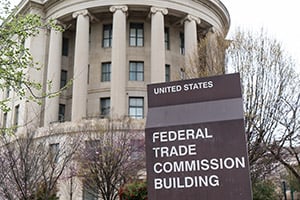Source: site
 If consumers inquire about details mentioned in the FTC’s report, debt collection firms can review it and provide additional information on legitimate account resolution options.
If consumers inquire about details mentioned in the FTC’s report, debt collection firms can review it and provide additional information on legitimate account resolution options.
The Federal Trade Commission has published advice for consumers considering various methods to settle their debts.
The report primarily focuses on debt relief scams that charge fees for their services, often without helping consumers resolve their accounts.
The report provides recommendations for consumers, including:
- Review your household budget using a worksheet to get started.
- Call your creditors and ask for a payment plan.
- If a debt collector contacts you, communicate with them at least once to confirm the debt amount, source, and next steps for payment or debt verification.
- Consider a credit counselor or credit counseling agency if you need help. A good credit counselor will help you make a budget and repayment plan that works for you.
The FTC also provides an overview of how to avoid debt relief scams, such as ensuring any agreements are in writing and paying for debt settlement services once they are complete.
This information may be helpful for ACA International members working with consumers who also received the information from the FTC and have questions during the debt collection process.
ACA’s Know My Debt website complements these efforts by providing reliable consumer education on:
- Laws and regulations protecting consumers.
- How to work with debt collectors.
- Answers to common questions about credit reporting and credit scores.
- Information about identity theft, debt collection scams, and other consumer concerns.
ACA SearchPoint compliance document #3002, Communicating with Debt Settlement Companies (PDF), says it is generally not permissible to speak to debt settlement companies under the Fair Debt Collection Practices Act, even if they have power of attorney from the consumer. Document #1142 on Settlement Offers (PDF) outlines how they may violate the FDCPA.
FTC Shuts Down Debt Relief Operation
The FTC also recently temporarily halted an alleged debt relief services scheme targeting seniors, including veterans, through the use of deceptive practices as part of its scam prevention and enforcement efforts. The scheme, operated by seven companies and three individuals under the name Accelerated Debt Settlement, falsely claimed to reduce consumers’ debt by up to 75% or more.
According to the FTC’s complaint, the defendants impersonated consumers’ banks, credit card companies, and government agencies to mislead them into paying thousands of dollars for supposed debt relief services.
ACA will continue to work with the FTC and other regulators to help them understand the complex issues that legitimate debt collectors face. The association provides comprehensive compliance education and support for most debt collectors who operate lawfully, prioritize consumer protection, and serve an essential role in our credit-based economy.
Scams targeting consumers from bad actors posing as legitimate companies harm the accounts receivable management industry, as well as consumers and creditor clients.
New Legislation Would Strengthen Requirements for Credit Repair Organizations
In related news, Congress is reviewing the bipartisan Ending Scam Credit Repair (ESCRA) Act, H.R. 306, to combat deceptive and fraudulent activities within the credit repair sector.
It was discussed last month after the passage of several other bills by the House Financial Services Committee, ACA previously reported.
Current law prohibits knowingly making false or misleading statements about a consumer’s creditworthiness or standing to consumer reporting agencies or consumer credit providers.
The ESCRA Act expands these prohibitions to include false statements made to the Consumer Financial Protection Bureau, Federal Trade Commission, or law enforcement agencies.
The legislation also revises credit repair organizations’ (CRO) obligations to consumers. A CRO is prohibited from charging a consumer for a service (such as getting inaccurate information removed from a credit report) until the CRO provides proof of success not less than six months after providing the service.



 If consumers inquire about details mentioned in the FTC’s report, debt collection firms can review it and provide additional information on legitimate account resolution options.
If consumers inquire about details mentioned in the FTC’s report, debt collection firms can review it and provide additional information on legitimate account resolution options. 